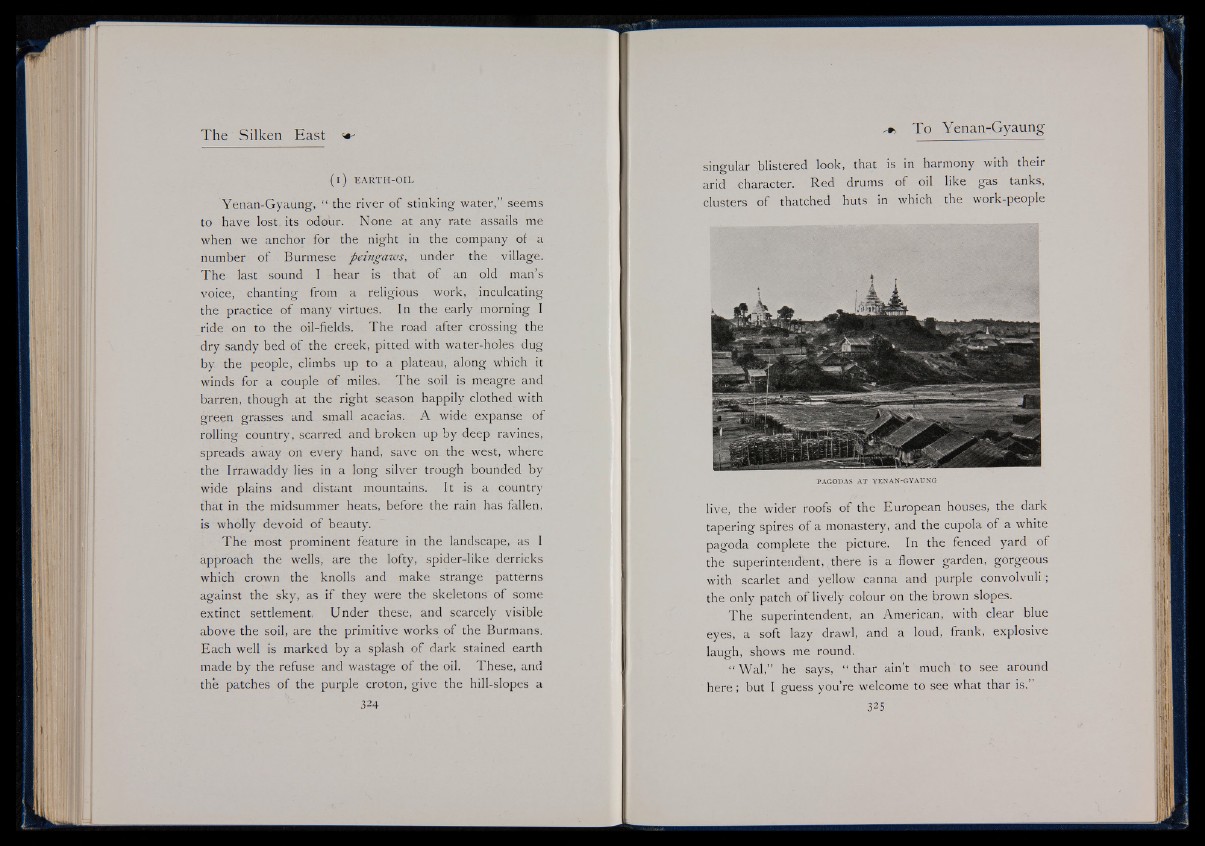
( i ) EARTH-OIL
Yenan-Gyaung, “ the river of stinking water,” seems
to have lost its odour. None at any rate assails me
when we anchor for the night in the company of a
number of Burmese peingaws, under the ■village.
The last sound I hear is that of an old man’s
voice, chanting from a religious work, inculcating
the practice of many virtues. In the early morning I
ride on to the oil-fields. The road after crossing the
dry sandy bed of the creek, pitted with water-holes dug
by the people, climbs up to a plateau, along which it
winds for a couple of miles. The soil is meagre and
barren, though at the right season happily clothed with
green grasses and small acacias. A wide expanse of
rolling country, scarred and broken up by deep ravines,
spreads away on every hand, save on the west, where
the Irrawaddy lies in a long silver trough bounded by
wide plains and distant mountains. It is a country
that in the midsummer heats, before the rain has fallen,
is wholly devoid of beauty.
The most prominent feature in the landscape, as I
approach the wells, are the lofty, spider-like derricks
which crown the knolls and make strange patterns
against the sky, as if they were the skeletons' of some
extinct settlement. Under these, and scarcely visible
above the soil, are the primitive works of the Burmans.
Each well is marked by a splash of dark stained earth
made by the refuse and wastage of the oil. These, and
the patches of the purple croton, give the hill-slopes a
singular blistered look, that is in harmony with their
arid character. Red drums of oil like gas tanks,
clusters of thatched huts in which the work-people
PAGODAS A T Y EN AN -G Y AO N G
live, the wider roofs of the European houses, the dark
tapering spires of a monastery, and the cupola of a white
pagoda complete the picture. In the fenced yard of
the superintendent, .there is a flower garden, gorgeous
with scarlet and yellow canna and purple convolvuli;
the only patch of lively colour on the brown slopes.
The superintendent, an American, with clear blue
eyes, a soft lazy drawl, and a loud, frank, explosive
laugh, shows me round.
“ Wal,” he says, “ thar ain’t much to see around
here; but I guess you’re welcome to see what thar is.’
¡¡SP